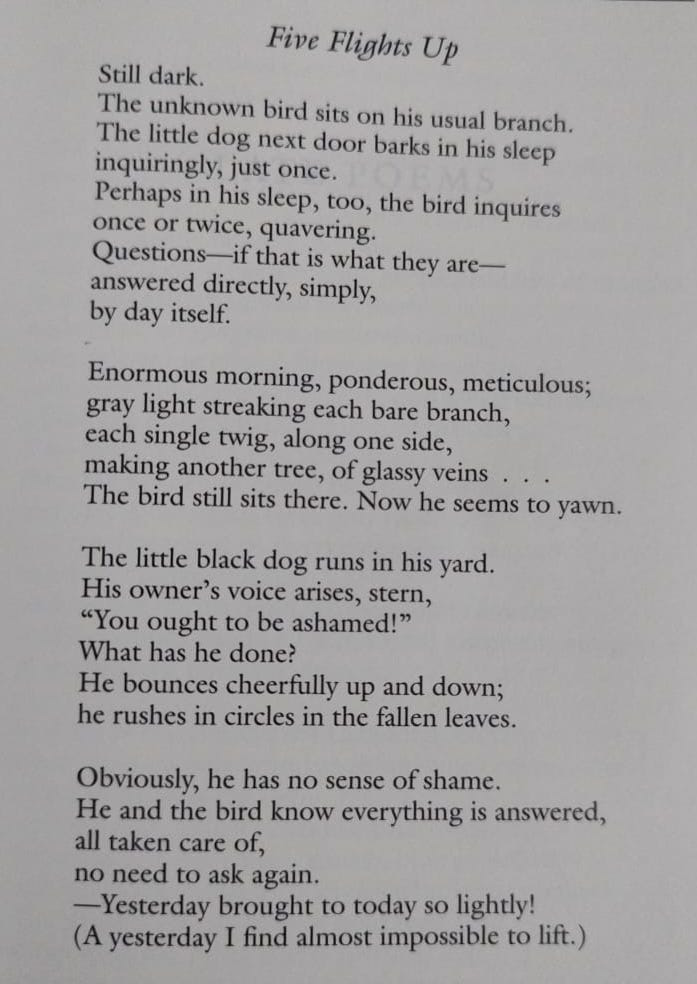I’ve developed a taste for a particular kind of writing. Writing that is aware of the physical space it is set in. The physical space might not be the focal point of the piece but as long as it’s not taken for granted, I find the piece appealing. Naturally one starts looking for writers who fit the bill. It is in this process that I discovered the writings of Elizabeth Bishop.
She makes the physical space come alive (from her point of view, of course) by describing it in great detail. Her descriptions or details give precise information to the reader of how a place looked, smelled, or sounded like. But they do something more than that. They induce a sense of recognition. You end up thinking how you couldn’t see something so evident, like in the following bits from her poems. Reading them feels like putting on glasses to sharpen a blurry image -
On the unbreathing sides of hills
they play, a specklike girl and boy,
alone, but near a specklike house. the brook sings loud from a rib cage of giant fern
Finally a grave green dust settled over your big aimless hills.
How far can descriptions go? If someone told you that X looks like Y, your natural reaction would either be ‘so?’ or ‘I don't think so’. Bishop’s descriptions lie somewhere in the middle of these two extremes. But her work is not all ‘descriptions’ or ‘details’. The sense of recognition in her poems is not limited to physical spaces. It works at an emotional level too and at times it is difficult to tell the difference. It looks as much inwards as it does outwards. The poem I am sharing today is an example of this -
In the last line of this poem, the speaker’s gaze turns inwards. Until then, she makes herself absent from the drama and plays the role of an observer. ‘A yesterday I find almost impossible to lift’. What does she mean by ‘lift’ here? How do you lift something as abstract as ‘yesterday’? Is it because it’s a heavy baggage that animals and birds don’t have to carry? Is this a lament or just an objective observation? One can never be sure and that’s exactly the point. I hope, dear reader, this poem serves as the perfect fodder for your thoughts, whatever they might be at the moment. It certainly has for me.





